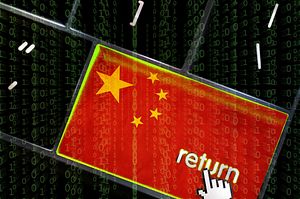The U.S government has charged a Chinese businessman with hacking into Boeing and attempting to sell design information for several military planes. The accused, Su Bin, worked and lived in Canada, where he was arrested on June 28 according to the New York Times. Bin remains in custody awaiting a bail hearing later this month. The U.S. is seeking to have him extradited for trial.
According to the charges filed by U.S. prosecutors in Los Angeles, Bin conspired with other hackers to collect and attempt to sell information on several Boeing-manufactured aircraft. The hacking, which began in 2009, primarily focused on the C-17 military cargo aircraft, according to Reuters. NYT reports that Bin and his associated stole over 65 gigabytes of data from Boeing between 2010 and 2012, with the majority focused on the C-17. However, Bin also attained smaller amounts of data relating to the F-22 and F-35 jets manufactured by Lockheed Martin. The court documents do not say whether Bin was successful in selling any data to the companies he contacted in China, which included several state-owned enterprises.
The charges against Bin come nearly two months after the Department of Justice indicted five PLA officers on charges of hacking and economic espionage. U.S.-China relations are still suffering from the fallout of that decision — immediately after the announcement was made, China suspended the U.S.-China cyber working group and it has yet to be revived.
Bin’s case, however, is different in a number of crucial ways from the PLA indictment. For one thing, Bin will actually face trial. He is already in custody and will likely be extradited to the U.S. soon. Meanwhile, the five PLA officers will never see the inside of a U.S. courtroom, making the indictment little more than political theater. Bin’s case is thus far more interesting legally, as it will require a detailed presentation of evidence of Bin’s alleged hacking activities.
More importantly for the U.S.-China relationship, however, is the fact that China’s government is not implicated even indirectly in Bin’s case. Bin is a private citizen, and there is no indication in the charges against him that he was acting at the behest of government agencies. The PLA officers, meanwhile, are directly employed by China’s government; filing charges against them was tantamount to accusing Beijing of hacking. The diplomatic fallout showed the result. This time, the court documents were careful to avoid even confirming that China’s state-owned enterprises may have purchased information from Bin. This case carefully avoids blaming China for the crime even while it proves the U.S. government’s determination to fight economic cyber espionage.
Charging a private Chinese citizen with cyber espionage allows the U.S. to avoid a major incident with Beijing. In the wake of the charges against PLA officers, some experts (including the participants in a ChinaFile conversation on the topic) argued that such a civil case should have been the strategy pursued from the beginning, as charging government officials was more likely to be counterproductive. A civil case would be both less damaging and more legally feasible. Given this, it’s curious that the U.S. government opened with the charging of PLA officers instead of pursing Bin’s case first.
In the wake of the May indictment of PLA officers, the Department of Justice promised that more charges would follow. The million-dollar question is whether future cases will be suits against private citizens or companies, or further symbolic charges brought against Beijing itself.
































